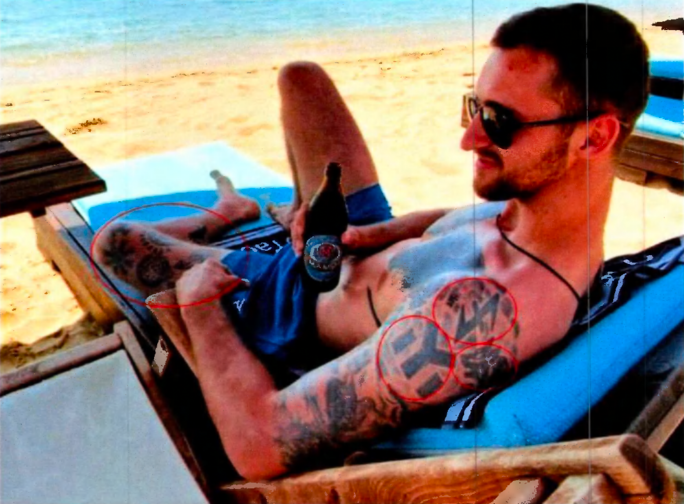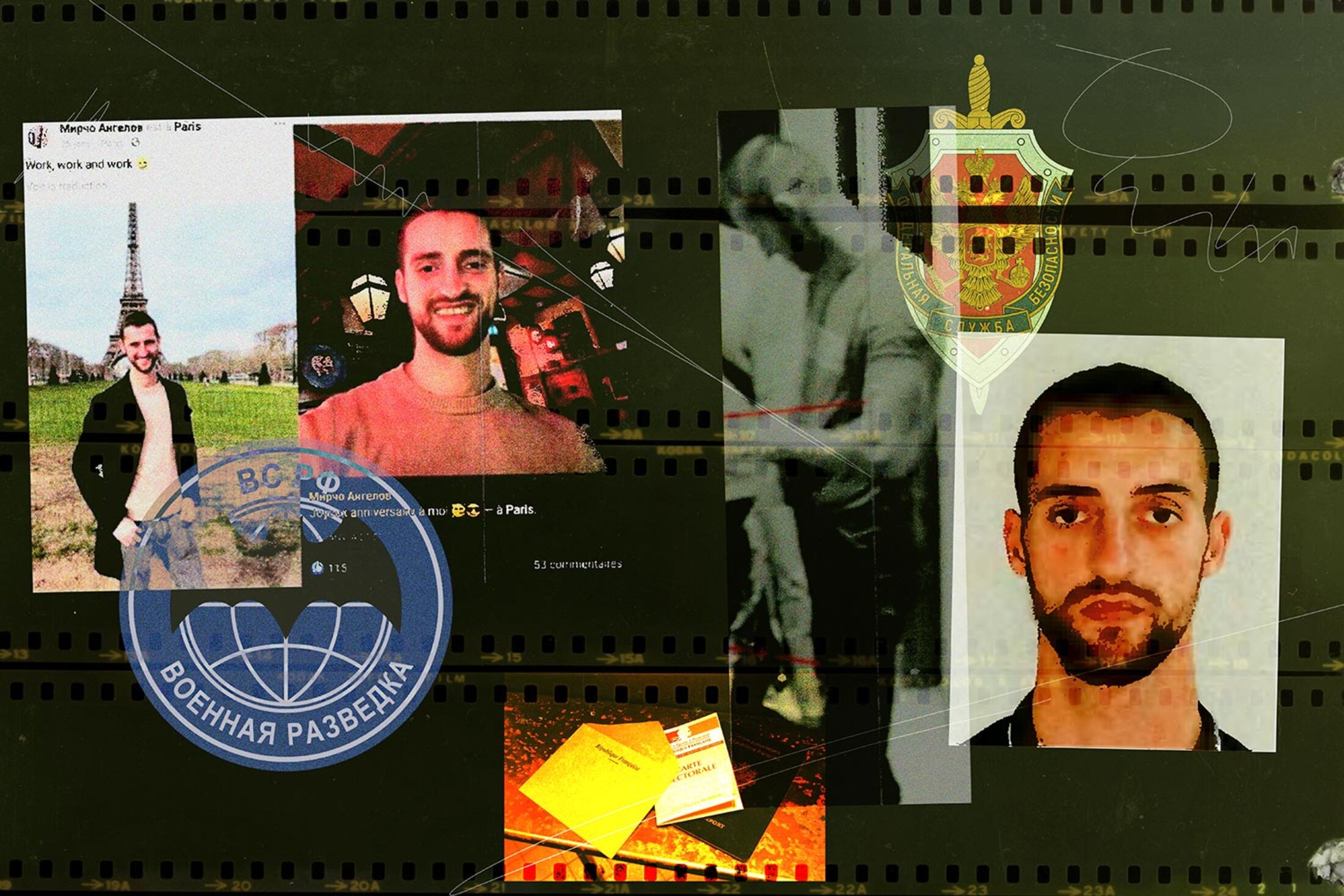Though the next elections are still a year off, the French authorities are already worried. According to Mediapart's information, France’s domestic intelligence service, the DGSI, has tracked saboteurs in the pay of the Kremlin passing through the country. These individuals are said by one source close to the case to pose a “genuine threat to future elections in Europe”. For according to security reports seen by Mediapart, the “Russian presidential authorities” are no longer limiting themselves to disinformation operations. In recent months, acts of “violent” interference have been reported in several countries holding elections.
The Russian embassy in France did not respond to Mediapart's questions on this. Yet, as is observed at the end of a report by one security agency, “all European counter-espionage services are on alert”. Over recent months, Mediapart has gathered widespread evidence, both in writing and through sources, of a deep level of shared intelligence on the issue across the continent. The reason for exchanging such intel is clear: the tools used to destabilise a neighbouring nation's elections may well be turned by Russia against one’s own territory come polling day. According to various agencies the next expected target is Poland, and its presidential election votes set for May 18th and June 1st.

Enlargement : Illustration 1

Back in October 2024, with Moldova’s presidential election and a referendum on joining the European Union just weeks away, the European Parliament passed a resolution urging Russia to respect the independence of the former Soviet republic wedged between Romania and Ukraine. Moldovan police had just uncovered a vote-buying scheme aimed at supporting pro-Russian interests and revealed that the Kremlin had allegedly put up more than 100 million euros in its bid to block the country's closer ties with the EU.
Indeed, thirteen million euros had already been sent to pay some 130,000 Moldovans to vote “no” in the referendum and against the outgoing president, a staunch pro-European. The operation was overseen by Ilan Shor, a businessman and former Moldovan MP now living in exile in Moscow following a conviction for embezzling public funds. There, he reportedly lives off the wealth of oligarch Roman Abramovich, the former owner of Chelsea football club in London and a man widely seen as close to Vladimir Putin.
But this financial operation is not what most worries intelligence services across Europe.
Forest camp
In the autumn of 2024 Moldova’s intelligence service, the SIS, warned its European counterparts that between July and October 2024 several groups of their own nationals had been sent to training camps in Bosnia and Herzegovina and Serbia. The aim was to learn how to bring down Moldova’s government by force.
Acting on orders from the Russian presidential authorities, under the watch of the FSB - Russia’s home intelligence service and heir to the KGB - and bankrolled by Ilan Shor, around 100 young men were drilled in a camp located in forests near Banja Luka, the Bosnian Serb regional capital.
In charge were two men: Mikhail Potepkin, once the right-hand man of the late Yevgeny Prigozhin, and who ran Wagner’s operations in Sudan, and, more crucially, Konstantin Goloskokov. According to sources the latter is suspected of being an officer in the GRU - Russia’s military intelligence - and is seen by several Western agencies as a “major figure” in Russian subversion across Europe. Goloskokov, then 22, first came to light in 2009 when he claimed responsibility for a cyberattack on Estonia two years earlier, shortly after the Baltic state joined NATO. At the time, Goloskokov was a “commissar” in the pro-Kremlin youth group Nashi (“Ours”). After his stint with the Putinist movement he vanished from public view and social media.
According to Mediapart's information, under Goloskokov's command in Bosnia and Herzegovina were ten Russians, former members of the Wagner and La Ferme private military outfits once owned by Prigozhin, and a Bulgarian man who is the subject of an arrest warrant issued by French judges.

Enlargement : Illustration 2

On the night of May 13th 2024, CCTV footage at the Shoah Memorial in Paris caught Mircho Angelov, his hood pulled up, placing a stencil on a wall and then spraying red paint over the Wall of the Righteous. The 27-year-old Bulgarian painted a total of 35 red handprints over plaques bearing the names of those who saved Jews during the Second World War.
As Mediapart has previously revealed, Angelov, whom all his accomplices pointed to as the ringleader, has tattoos over his body honouring Adolf Hitler, the Waffen-SS and other Nazi symbols.
Tasked with the 'Red Hands' investigation, the DGSI learnt from “partner” intelligence services that after returning from Paris, Angelov had travelled on to Germany, where he is believed to have desecrated the grave of the controversial Ukrainian politician Stepan Bandera in Munich. Bandera is seen by some as a freedom fighter against Soviet rule, and by others as a Nazi collaborator.
In early June last year, aware he was being hunted, Mircho Angelov is thought to have been whisked away to the Serbian city of Niš. That did not stop him from taking charge remotely of a fresh group of Bulgarians who, shortly after sharp criticism from the Kremlin over the deployment of French military instructors in Ukraine, laid five coffins filled with plaster at the foot of the Eiffel Tower. Each was draped in a French flag and labelled “French soldier from Ukraine”.
According to a confession by one of the Bulgarians subsequently arrested at the foot of the Eiffel Tower, Mircho Angelov had indeed been the “coordinator” of this operation. The detained man told French police: “I’m 100% sure. From what I saw and heard, he’s leading several missions like this in other countries.”
Explosives and expanding foam
At the end of 2024 Moldova’s SIS published a 16-page report detailing, among other things, what the young insurgents were taught in the camps run by Russian spies. In Moscow, most of the would-be saboteurs were taught “how to provoke the police”, “ways to disarm law and order personnel”, “how to use fireworks and smoke bombs”, “protecting protest leaders”, “neutralising plain-clothes officers” and so on.
The most able recruits were sent for further training in the Balkans under the watchful eye of Konstantin Goloskokov, Mircho Angelov and their allies. The teaching there included drone handling, the “psychology of protest crowds”, weapons drills and the use of explosives.
According to the SIS report, several of the people trained in the camps in Bosnia and Herzegovina have since played a part in destabilisation operations in countries such as Germany and France. Alexander Bezrukovni, one of the Russian instructors at the Banja Luka camp, was arrested in November as he tried to flee Bosnia and Herzegovina. He was extradited to Poland in February, where he is accused of having led sabotage operations on Polish soil.
Ahead of their presidential vote and the referendum, Moldovan intelligence warned its European allies that there was a risk of hoax bomb threats being made at Moldovan polling stations located abroad. On November 3rd, during the second round of the Moldovan presidential election, bomb scares did indeed hit French polling stations, in the Paris area, in Bordeaux and Marseille, as well as in Germany, Spain, Italy, Romania, the United Kingdom and Ukraine.

Enlargement : Illustration 3

A few days later, in early December, as Germany’s legislative elections drew near, expanding foam was sprayed into the exhaust pipes of 277 cars across southern towns and cities. Stickers with the words “Sei Grüner” (“be more green”), alongside a picture of Robert Habeck, the German Green Party's candidate for the chancellorship, were slapped on the windows of the damaged cars. Initial news reports suggested climate activists might be to blame.
But as revealed by news magazine Der Spiegel, Germany’s BfV intelligence agency later identified four young men, a German, a Bosnian, a Romanian and a Serb, as the likely culprits. The four had allegedly acted on orders from a Serb based in Russia and were paid 100 euros for each car they wrecked.
In an exchange with the ringleader, one of the suspects was also thanked for his “good work” in Paris. And selfies taken at the Eiffel Tower were later found on the phone of one of his accomplices. If any such events had taken place on French soil they would have most likely occurred in January 2024 and again over the following summer. Yet according to Mediapart's information and Der Spiegel, though France’s DGSI were briefed, they found no signs that this gang had carried out any such acts of vandalism in France.
However, Moldovan intelligence did remind their German and French counterparts that in April 2024 expanding foam had already been used to vandalise cash machines in Chișinău, the Moldovan capital. The person behind that attack was traced; it was the Bulgarian neo-Nazi Mircho Angelov.
Meanwhile, Romania’s intelligence service, the SRI, kept its European partners in the loop about the Kremlin’s interference in the run-up to Romania’s presidential election in the autumn of 2024.
After showing how a manipulated TikTok campaign had helped sway the first round of last year’s vote in favour of a far-right, pro-Russian candidate, Romania’s police and spies pressed on with their probe. In early March, they arrested six Romanian citizens accused of “treason” and with setting up a “paramilitary group” aimed at toppling the government in Bucharest.
According to the Romanian judiciary, the six “had been in touch on several occasions with agents of a foreign power” based both in Romania and Russia. Two of them travelled to Moscow in January. They also “actively sought backing” from staff at the Russian embassy in Bucharest, including the military attaché and his deputy. Both embassy staff were kicked out of the country as a result.
At the same time, an arrest warrant was issued for Horațiu Potra, a former member of the French Foreign Legion turned hired gun in Africa (as recounted in the magazine XXI). Potra, known for his likeness to Evgueni Prigozhin, had already been arrested after the cancellation of the presidential election. He had been heading for Bucharest with around 20 men in vehicles loaded with “bladed weapons (machetes, swords, daggers), firearms, large sums of money, laptops, data drives and a professional drone”, the Bucharest prosecutor’s office said at the time. He was later released from custody in relation to that incident. Potra had been providing security for the far-right, pro-Russian presidential candidate Călin Georgescu, the main beneficiary of the Kremlin’s interference.
-----------------------------------------------------------------------------
- The original French version of this article can be found here.
English version by Michael Streeter


